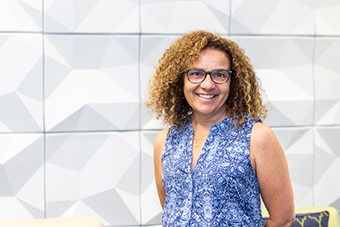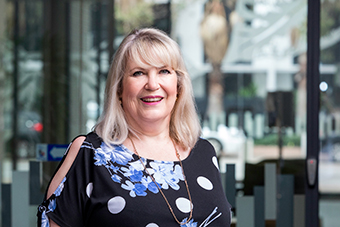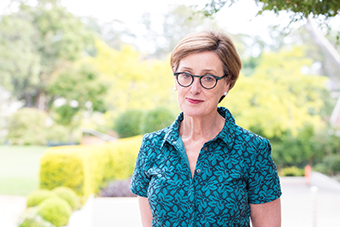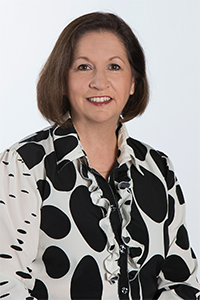
What is screening for cancer?
Regular Cancer screening may save your life
Screening is a process of looking for signs that cancer may be present in the body.
For bowel screening it is recommended that you do your screening every two years from the aged of 50.
For breast screening (mammograms) it is, again, recommended you get a mammogram every two years after the age of 50.
For Cervical cancer screening the testing has recently changed. The testing has moved from every two years to every five years for women who are 25 years and over. However, you need one negative screen under the two-year pap test before going to the five-year testing schedule.
Detecting cancer at an early stage helps make treatment easier – prevention is key
Northern Sydney GP, Dr Gilda Brunello says, “If we discover cancers at the very early stages when we are screening for them, there is a really high cure rate. In the case of cervical cancer, for example, we are detecting things before they even become cancer. The smaller the cancer, the easier it is to treat and the more treatment options we have. So, prevention is the key.”
There are numerous reasons why people don’t get screened for bowel, breast, or cervical cancer. “Some people don’t understand or fear the process. Some people aren’t aware of the free screening or bulk billing services available and cost can be a factor. Time, or lack of it, can also be an issue, and some people are simply averse to medical tests or going to the doctor at all. There might also be a language or cultural barrier which can result in a roadblock to screening. Where cultural or English as a second language obstacles are at play it is good to use an interpreter and provide materials on the benefits of early detection in different languages. For special groups in certain locations it is also great to have General Practitioners that speak multiple languages and understand the culture of that particular population. Most free cancer screening services also have interpreters available when you make your booking. Education and understanding is the focus, and as a GP you need to listen to any concerns about the screening processes your patients may have and go about dispelling any myths of misinformation,” continues Dr Brunello.
“Family history has an impact on screening. If you have a family history of breast, bowel, or cervical cancer (especially when the family member was younger than 50 when they were diagnosed) or you are showing any symptoms relating to these cancers, GPs might recommend earlier screening or specific upfront tests like colonoscopies for bowels or MRIs for breasts,” says Dr Brunello.

Dr Gilda Brunello
Cremorne based General Practitioner
“If we discover cancers at the very early stages when we are screening for them, there is a really high cure rate. In the case of cervical cancer, for example, we are detecting things before they even become cancer.”
Early detection of breast cancer

Meredith Kay
Director of BreastScreen NSW in Northern Sydney and Central Coast
“Get to know your breasts and what is normal for you. “
“As well as having your screening mammogram every two years, it’s important you regularly check your breasts for any changes. Be breast aware in between appointments. Get to know your breasts and what is normal for you. Look at your breasts in the mirror and feel your breasts regularly. If you notice any changes in your breasts such as lumps; a change of the size or shape of your breast or nipple; nipple discharge without squeezing or persistent new breast pain, then you should see your doctor straight away,” insists Director of BreastScreen NSW in Northern Sydney and Central Coast, Meredith Kay.
BreastScreen NSW invites women at the age of 50 for their first free mammogram. The program is especially recommended for women aged 50 to 74 years. Also, women in the 40 – 49 age group are also eligible for the program however it’s recommended they discuss their need for a breast screen with their GP first. BreastScreen NSW invites women at the age of 50 to have their first screening mammogram as soon as possible. After this, they recommended that women have another mammogram every two years until the age of 74. All BreastScreen NSW’s radiographers are female and are well experienced. No doctor’s referral is needed, and the appointment only takes 20 minutes.
Early detection of cervical cancer
It is better news for the women of Northern Sydney when it comes to cervical cancer screening, where the rate of screening is higher (63.1%) than the NSW state average (56.3%).
In December 2017, cervical screening changed in Australia. The Pap Test has been replaced with a new Cervical Screening Test every five years. Cervical cancer is one of the most preventable cancers and the test is a simple procedure to check the health of your cervix. It feels the same as the Pap test, but tests for the human papillomavirus (known as HPV). For women aged 25 to 74 your first Cervical Screening Test is due two years after your last Pap Test. After that, you will only need to have the test every five years if your result is normal.
“The new screening is now only every 5 years for women aged between 25-74 and is so sensitive and accurate that it picks up HPV as early as possible and, if you are negative, means you don’t have to go back for a cervical screen for another 5 years. This is welcome news for all women. With the old cancer screening process for cervical cancer we have more than halved the rates of both cancer occurring and the rates of death when cancer is present. This statistic will only continue to improve with the new screening process,” says Professor Annabelle Farnsworth – Medical Director & Director of Cervical Screening at Douglass Hanly Moir Pathology.
“The new initiative of the self-collect pathway for cervical screening, where the patient can do their own sample in a clinical setting, should be cleared in NSW in a couple of months. Be mindful that this option is only available for women who are under-screened or have never been screened and has restricted Medicare benefits. To access it you must be over the age of 30 and not been screened for 2 years over the recommended screening interval. It is very prescriptive and must be done within the doctor’s surgery. It cannot be done at home like the bowel screening test for example. You discuss it with your medical professional, they give you the sampling devise and it can be done behind a curtain or in a bathroom. The swab is then sent to the lab and it is very quick and easy. This was included in the new screening program because of some of the barriers to cervical screening that were identified such as uncomfortable vaginal examinations,” continues Professor Farnsworth when talking about the new cervical screening innovations.

Professor Annabelle Farnsworth
Medical Director & Director of Cervical Screening at Douglass Hanly Moir Pathology.
“The new screening is now only every 5 years for women aged between 25-74 and is so sensitive and accurate that it picks up HPV as early as possible and, if you are negative, means you don’t have to go back for a cervical screen for another 5 years.”
Early detection of bowel cancer

Donna Pettigrew
Former nurse and Commissioning Operations Manager at Sydney North Health Network
“In Northern Sydney, bowel cancer screening rates among men aged 50-74 years are lower (37.9%) compared to females from the same age group (40.9%), so the men need to pull up their socks and get those samples in the posts. Sounds unpleasant, but the potential of something far more serious like bowel cancer is far worse”
None of us really want to talk about cancer screening, especially when it comes to the “poo test” with Bowel Cancer screening. However, the free bowel screening kit you get delivered to your home every two years after you turn 50 by the Australian Government, can be done at home and posted back to check for any abnormalities in the bowel that may lead to bowel cancer.
“Once you have sent your samples in the post and the clinical tests have been done, your result will be mailed to you and your doctor (if you have nominated one) a few weeks after you post your samples. If no blood is found in your samples, your test result will be NEGATIVE. This does not mean that you do not have or can never develop bowel cancer. Tests like these detect up to 85% of bowel cancers. Therefore, it is important to screen every two years and talk to your doctor if you develop symptoms after getting a negative result. If a POSITIVE result is found in your samples discuss is right away with your GP. A positive result may be due to other factors such as polyps, hemorrhoids, or inflammation, but it is important to investigate. Your doctor may recommend a further test to find the cause of the bleeding, usually a colonoscopy,” says former nurse and Commissioning Operations Manager at Sydney North Health Network, Donna Pettigrew.
“In Northern Sydney, bowel cancer screening rates among men aged 50-74 years are lower (37.9%) compared to females from the same age group (40.9%), so the men need to pull up their socks and get those samples in the posts. Sounds unpleasant, but the potential of something far more serious like bowel cancer is far worse,” says Donna.
A number of new program resources are available on the National Bowel Cancer Screening Program website. These resources include the Home Test Kit instruction brochure which provides the four easy steps that may help save your life and translated resources in 22 different languages.
The facts about screening for Breast Cancer / Mammograms
- BreastScreen NSW recommends women aged 50-74 to screen every 2 years. The Australian and NSW Governments jointly fund these free mammograms.
- Women at 50 years of age are invited by BreastScreen NSW to have their first free breast screen; those aged 40-49 or 75 and over are also eligible for free mammograms however women in these age groups are encouraged to discuss this with their General Practitioner first.
- Mammograms can show microscopic breast cancers before they can be seen or felt. Finding a breast cancer earlier helps better a woman’s chance of survival.
- Regular 2-yearly mammographic screening remains the clinically recommended method of detecting breast cancer early. This is important because the smaller a breast cancer is found; the more options women have for treatment.
- Women who have their breast cancer detected early through a screening mammogram with are much less likely to need a mastectomy or chemotherapy.
- 9 out of 10 women who develop breast cancer do not have a family history of breast cancer. Many people think that a family history of breast cancer puts you at the highest risk of developing this type of cancer – but did you know that age and being female are the two biggest risk factors?
Call Breast Screen NSW on 13 20 50 to book your free screening mammogram today; don’t delay.
Or book online: https://book.breastscreen.nsw.gov.au/
There are over 200 locations in NSW. 20 minutes every 2 years could save your life.
For further information and resources, please visit our cancer screening website page.
